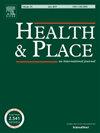从环境卫生到安全:调查尼泊尔的水、环境卫生和个人卫生与亲密伴侣暴力之间的联系。
IF 4.1
2区 医学
Q1 PUBLIC, ENVIRONMENTAL & OCCUPATIONAL HEALTH
引用次数: 0
摘要
亲密伴侣暴力对全球妇女的影响尤为严重。虽然人们认识到水、环境卫生和个人卫生(WASH)与IPV之间的联系,但其潜在机制需要进一步探索。本研究探讨了月经健康与卫生(MHH)实践在尼泊尔WASH-IPV关系中的中介作用和伴侣控制行为的调节作用。根据Sen的能力方法和社会控制理论,我们假设通过改善卫生保健实践,获得WASH设施与IPV呈负相关。我们认为这种关系受到伴侣控制行为的调节。利用尼泊尔5178名妇女和女孩的人口健康调查数据,我们采用结构方程模型。我们的研究结果表明,获得WASH设施与更好的MHH结果呈正相关,而MHH结果与IPV显着负相关。WASH通过MHH对IPV的间接影响具有统计学意义,支持MHH的中介作用。伴侣控制行为与MHH结果之间的相互作用显著预测IPV,突出了性别规范的调节作用。在伴侣控制行为更为普遍的地方,改进的MHH实践的保护作用减弱。这些发现强调了解决资源可用性(增强能力)和有害的性别规范(通过控制行为制定)以减轻IPV的重要性。我们提倡采取一种综合方法,包括加强WASH的获取,改进卫生保健做法,以及针对有害性别规范和控制关系中的行为的干预措施。本文章由计算机程序翻译,如有差异,请以英文原文为准。
From sanitation to safety: Investigating the link between water, sanitation and hygiene and intimate partner violence in Nepal
Intimate Partner Violence (IPV) disproportionately affects women globally. While the link between Water, Sanitation, and Hygiene (WASH) and IPV is recognized, the underlying mechanisms require further exploration. This study investigates the mediating role of Menstrual Health and Hygiene (MHH) practices and the moderating role of Partner Controlling Behaviors in the WASH-IPV relationship in Nepal. Drawing on Sen's Capability Approach and Social Control Theory, we hypothesize that access to WASH facilities, by improving MHH practices, is negatively associated with IPV. We propose that this relationship is moderated by Partner Controlling Behaviors. Using Nepal Demographic Health Survey data of 5178 women and girls, we employed Structural Equation Modelling. Our findings reveal that access to WASH facilities was positively associated with better MHH outcomes, which were significantly negatively associated with IPV. The indirect effect of WASH on IPV via MHH was statistically significant, supporting MHH's mediating role. The interaction between Partner Controlling Behavior and MHH outcomes significantly predicts IPV, highlighting the moderating influence of gender norms. The protective effect of improved MHH practices is weakened where Partner Controlling Behavior are more prevalent. These findings underscore the importance of addressing both resource availability (enhancing capabilities) and harmful gender norms (enacted through controlling behaviors) to mitigate IPV. We advocate for a comprehensive approach that includes enhanced WASH access, improved MHH practices, and interventions targeting harmful gender norms and controlling behaviors within relationships.
求助全文
通过发布文献求助,成功后即可免费获取论文全文。
去求助
来源期刊

Health & Place
PUBLIC, ENVIRONMENTAL & OCCUPATIONAL HEALTH-
CiteScore
7.70
自引率
6.20%
发文量
176
审稿时长
29 days
期刊介绍:
he journal is an interdisciplinary journal dedicated to the study of all aspects of health and health care in which place or location matters.
 求助内容:
求助内容: 应助结果提醒方式:
应助结果提醒方式:


